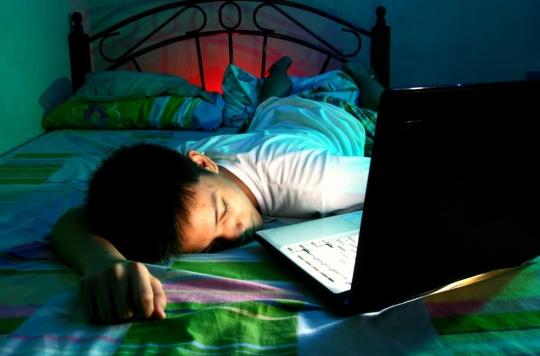Time spent in front of screens does not affect the mental health of adolescents according to a recent study conducted by Oxford scientists.

Is there really a link between time spent in front of screens and adolescent well-being ? Many parents are convinced of this, and yet research by Oxford academics has failed to provide relevant evidence on this subject. After analyzing data from over 17,000 teenagers, they claim there is no real link. Scientists thus cast doubt on the widely held idea that spending time online, gaming or watching TV, especially before bedtime, can harm the mental health of young people. The study was published on Oxford University website.
A larger study than previous ones
Unlike previous research, the Oxford study analyzed data from several countries to support its findings: Ireland, the United States and the United Kingdom. The researchers used a more rigorous methodology to quantify the daily time a teenager spends on screens, including both self-reported metrics and time-use logs.
This is all the more important since many studies on this subject rely solely on self-estimates of time spent in front of screens, which reduces their reliability (recent work has revealed that only a third of participants gave accurate information on the time they spent online).
After analyzing all this data, the new findings are surprising: the daily screen time of teenagers would only little impact on their mental health, both weekends and weekdays. In addition, the use of digital screens two hours, one hour or 30 minutes before bedtime is not clearly linked to a decrease in their well-being, even if this is often taken as fact by the media and the public debates.
“By applying statistical and methodological best practiceswe found little evidence of negative associations between digital screen use and adolescent well-being,” said Oxford Internet Institute researcher Amy Orben. social and professional lives, research on digital screen use and its effects on adolescent well-being is receiving increasing attention,” she adds. “To retain the trust of the general public, this type of research should all be equally transparent. We hope that our approach will establish a new baseline for new research on the psychological study of technology”.
.

















